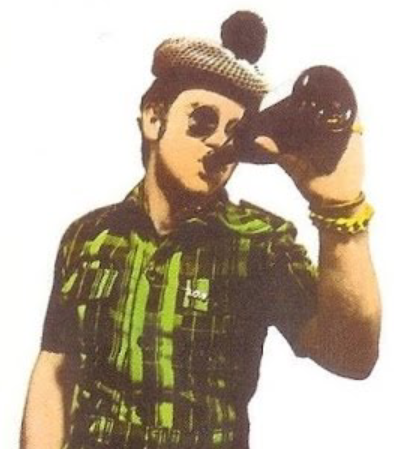I’ve been curious how many working researchers we’ve got in this community, and what you all do!
If you’re working in science (physical or social), engineering, etc in a research capacity, give a shout in the comments and let us know what you work on! Same goes for students and amateur scientists at any level. (And by amateur I mean those of you who are working on your own experiments but just not being paid for it / not working on a degree; I’m upset that “amateur” has a negative connotation, it shouldn’t.)
I’m currently a PhD candidate, working on transmission electron microscopy and electronic materials (mainly ferroelectrics). In the past I’ve been involved in research / product development in a few different industries, including medical devices, aerogels, and materials for RF devices.
I’m a PhD candidate too - my contract is finished now, but I am still writing my thesis. So I am currently at the awkward intersection of finishing a thesis and looking for a job.
My PhD focus is in applying time-resolved spectroscopic techniques to study the excited state dynamics of molecules. Basically, these are experiments in which a pulsed laser is used to excite the sample and a second probe light is used to measure a change in the absorption in response to the light. By measuring these changes in the absorption as a function of time, and applying quantum chemical methods to calculate the spectra of potential intermediates, one can sort of recreate a movie of what the molecule is doing after it absorbs light with a time resolution of femto to picoseconds. The materials that I study are organic dyes that are useful for microscopy, as well as molecules that respond to EUV light for applications in photonanolithography (for making the very small transistors in computer chips).
I am also an “amateur” scientist when it comes to biology, as many of my hobbies are nature-based and it’s not like I can turn off the science bug when it comes to hobbies.
Well that’s fascinating! The technique sounds a little bit like a cross between Raman and EXAFS/XANES? (Probably just because those are two techniques I happen to be familiar with though.)
It’s science-y enough but I’m definitely not considered a scientist so much as a technologist. I work as a MRI (Magnetic Resonance Imaging) Technologist. Previously a X-Ray Technologist.
My machine does all the science for me but it’s a pretty neat concept. Using magnetic gradients and RF pulses at hydrogen protons to acquire accurate digital imaging.
Happy to have you! The science behind MRI is fascinating, and the machines themselves are really cool. Have you ever seen a magnet quench? I don’t think they’re really supposed to happen during normal operation, but some of the videos I’ve seen have been rather dramatic.
It is pretty crazy people were able to figure that all out and we are able obtain crazy detailed pictures without radiation.
No I haven’t seen it! Hoping to see a controlled quench someday but also hoping to avoid needing to use it in any emergency situations; it’ll have to be a damn near life/death situation to hit that button. Very costly decision. I guess there’s also a dwindling supply of helium in the world so that could get interesting as time goes on.
Yeah, helium being a finite resource was something that really surprised me when I first learned about it! Better to keep it inside the MRI as much as possible for sure
helium recovery and recycling has come a long way, and the costs of helium are now justifying the extra expense of the hardware, so I think that problem should abate somewhat in the coming years.
I’m an associate professor in computer science, currently working on stochastic algorithms (like genetic algorithms).
Until now, I’ve been working on quite abstract optimization problems, but I’d like to switch to more useful applications, like social inequalities or climate change.
I get that. Working on a more abstract problem should, in theory, help solve more practical problems down the line, but sometimes it just feels less satisfying that working on something where you can see the real world application and (hopefully) results. I’m definitely looking to do something practical with my experience once I’m finished with my PhD.
PhD in Geology. Now am a research scientist working in more general materials science/chemistry/gas adsorption. My thesis was on lunar petrology where I studied Apollo 16 samples. My current research is much less exciting. Haven’t touched a rock in ages and my geologist heart hurts from it haha
Dang we gotta get you some cool rocks!
(I’ve always kinda wanted to thinly section some rocks with nice big grains and put them in the TEM; so many natural minerals have really interesting crystal structures!)
I’m a professor of chemistry, I mainly do organometallic research but we’ve been branching out into other areas.
Very cool! My only experience with organometallics is with CVD and related technologies (like we’ve got one machine we use called a FIB – focused ion beam – that uses an organometallic as a carrier for platinum deposited as part of the process). Mainly I think of them as “probably toxic, probably pyrophoric, treat with extreme caution” sorts of chemicals.
I’m working on my Astrophysics PhD. I study “galactic cannibalism” aka how galaxies grow and change by eating smaller galaxies. My big focus is on teaching and outreach though rather than research.
Cool! Is this the kind of thing that’s going to happen between Andromeda and the Milky-way, or is that fundamentally different because they’re more similar in size?
Yep, MW and Andromeda merger will be a “major merger” that will have huge effects on both galaxies. The ones I work with are small (“dwarf”) galaxies that have a much smaller effect on the big one that eats them.
I work in mine closure. I create plans to re-integrate them back into the surrounding landscape, and provide valuable end land uses (not just those centred around ecosystem re-establishment).
I’m a research professor of neurology, and my research focuses on developing novel cognitive assessments for measuring early-stage Alzheimer’s disease and other types of dementia.
That’s a field where it seems (to an outsider) like a lot has been happening recently! Glad to have you here!
You’d be correct! The new anti-amyloid drugs are very exciting, and it makes my work on preclinical Alzheimer’s even more fulfilling as it can have a real impact on getting people tested and treated as early as possible.
I’ve got a PhD in nonlinear vibrations. I’ve left academia for the space industry though.
That definitely sounds like something that could be useful in a lot of different ways - including in the space industry!
Yeah well most industries pray that everything stays all good and linear, but sadly it isn’t always the case haha. The next level is to design a structure with nonlinearities on purpose.
I work at a company that makes large and small rocket engines (e.g., the ones on SLS/Artemis, and solids for a number of defense programs), and various electrical power systems (e.g., for the ISS and some of the Mars rovers). I manage the space software engineering organization.
Look at this rocket surgeon, over here. SMDH.
I’m just a software/systems guy; I work with a lot of genuine rocket scientists - they’re fun to work with.
I’m a Data Scientist (physics PhD) for a large enterprise company. I’ve been in this field for the last decade and I’m kinda bored with it. I’m not exactly sure what to do next though…
Mmm yeah, I can imagine things might get a bit stale after a decade working on similar things. What was your physics PhD in, something you’d be interested in pursuing again maybe?
My thesis covered optoelectronic measurements of nanomaterials for novel photovoltaics. Even as a kid, I wanted some sort of career researching alternative energy, but those jobs sadly don’t exist.
Researching alternative sources of energy would certainly be a rewarding career. I’m a bit surprised to hear nobody’s doing it, I’d think there’d be companies trying to commercialize on the pretty massive progress we’ve seen in PV efficiency at the lab scale. I remember in my undergrad people were really excited about roll-to-roll manufacturing for flexible organic perovskite solar cells, but come to think of it I haven’t heard much about them in the last five years. I wonder what happened. Maybe just still to expensive to compete commercially with silicon PV?
Regardless, I hope you find a direction that’s fulfilling for you!
Yeah, it’s pretty hard to beat silicon. But, thanks so much for the well wishes! (I’m currently trying my hand as an Indie Game Dev, so we’ll see how that goes ha)
I have my PhD in physics with a background in material science and primarily work in Pharma developing early stage biologics programs (antibodies, gene therapies, etc). That means basically any of the molecules I have worked on are maybe 5+ years away from reaching the market. I don’t meet many other physicists in this field, instead it is primarily chemical engineers and biochemists. Even working in industry, I still have the chance to publish and attend conferences though.
A lot of my classmates from undergrad chemical engineering went into pharma, so I’m not surprised there are a lot of them around!
I still have the chance to publish and attend conferences
That’s good! One of the things I’ve liked most about my time in grad school has been attending conferences and getting to meet the other people working in the field face-to-face. I hope that wherever I land after this will be happy to let me continue to attend conferences.
I’m a PhD in chemical engineering and work in a testing laboratory for electrical engineering insulating materials. My dissertation was using predictive modelling (some data mining and machine learning, some more classical statistical methods) to estimate material properties from spectral data. I’m trying to combine a full-day engineering job with writing more journal articles in my spare time. Currently not going well but at least I’m not lacking for data!
Development engineer working with autonomous vehicles.
Worst part of it is having to interact with Tesla bros who think that they have self-driving figured out despite what experts in the field tell them.
Best part of it is being able to code functionality then sit down inside an actual physical vehicle and see, hear, and feel it act out what you programmed. Incredibly satisfying.
I’m a PhD candidate in inorganic and biochemistry! Loving the chem representation here, and loving OP’s username.







